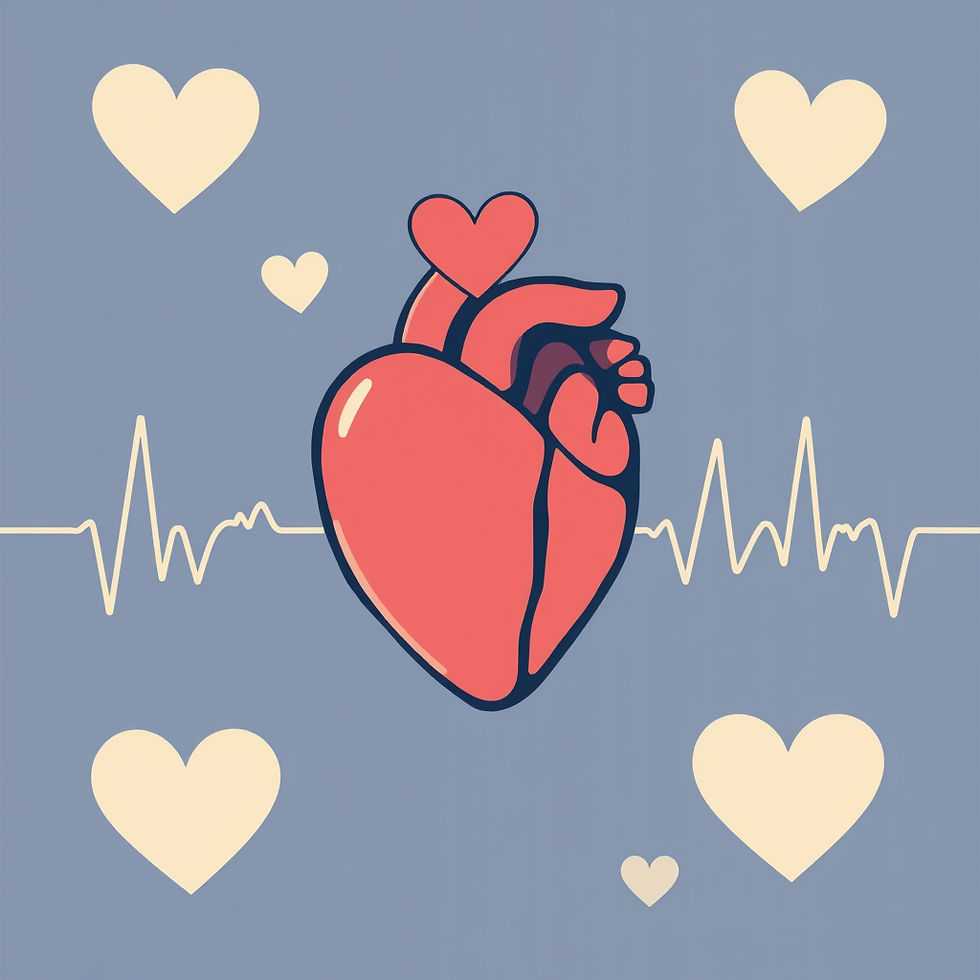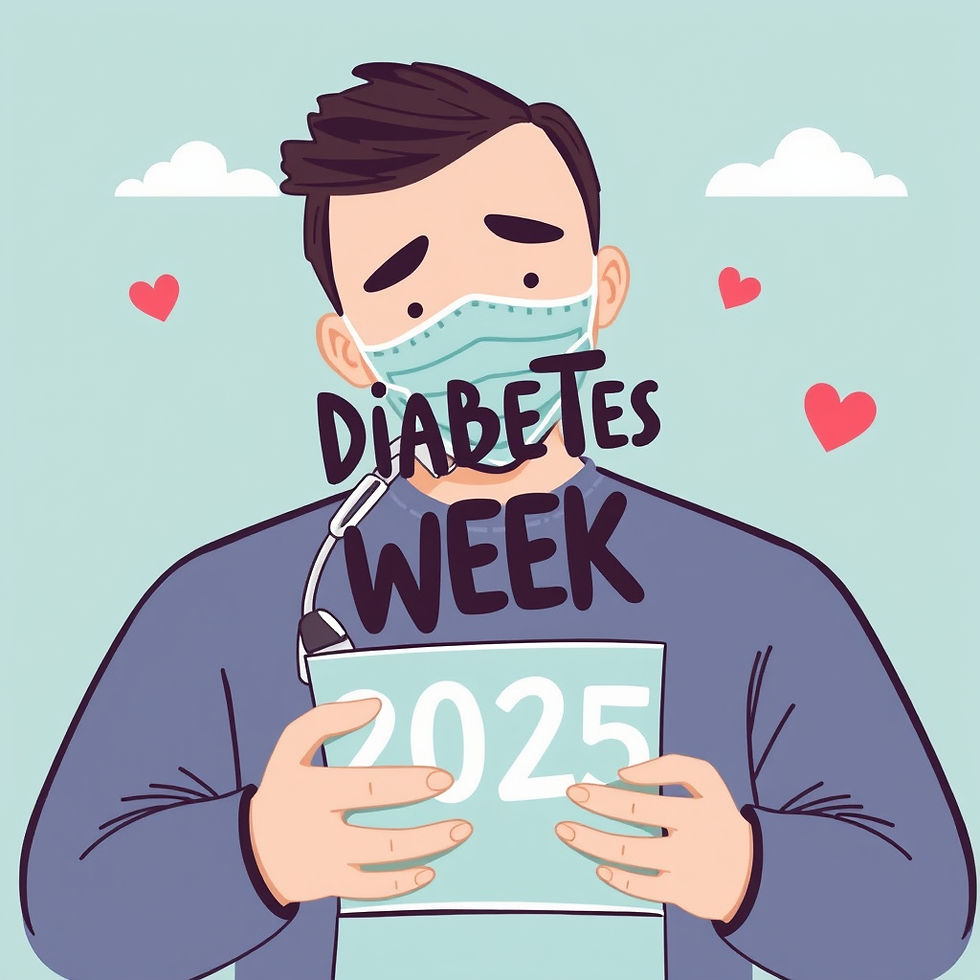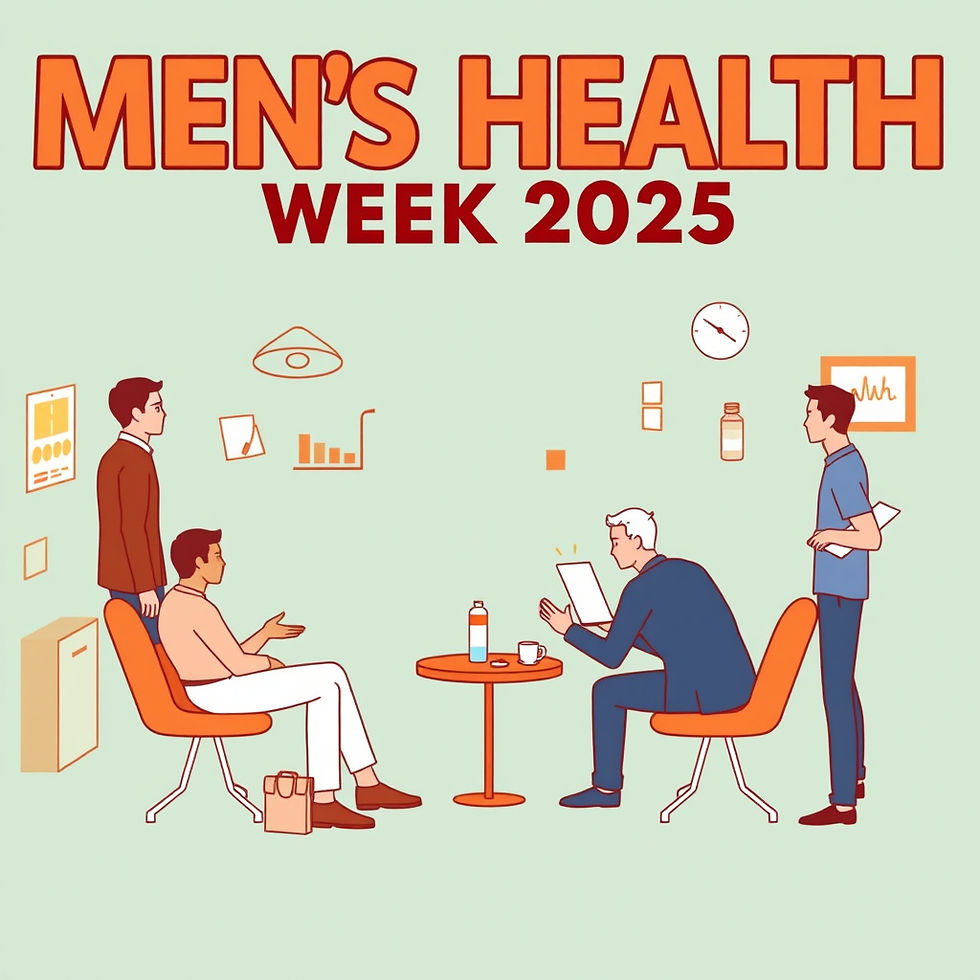World Heart Rhythm Week 2025: Making Every Beat Count
- Charlotte Currie
- Jun 4, 2025
- 2 min read

Date: June 2–8, 2025
Author: Charlotte Currie (Founder and Clinical Director of Heart Health Hub)
Heart Rhythm Week 2025 is here — a time to pause, reflect, and take charge of one of your body’s most vital signals: your heartbeat!
Running from June 2 to June 8, this week is dedicated to raising awareness about arrhythmias — abnormal heart rhythms that affect millions of people globally. Whether it's a fast heartbeat (tachycardia), a slow one (bradycardia), or an irregular rhythm (like atrial fibrillation), arrhythmias can be silent killers unless detected and managed early.
The 2025 Theme: "Check, Protect, Connect"
This year’s campaign encourages everyone to:
🩺 Check your heart rhythm🛡️ Protect yourself with knowledge and treatment🤝 Connect with others to raise awareness (so you'll be seeing lots of posts on social media from me)!
Why It Matters
1 in 4 adults over 40 will develop an irregular heartbeat at some point.
Atrial fibrillation (AFib), the most common arrhythmia, increases stroke risk by five times.
Many people don’t know they have an arrhythmia until it leads to serious complications.
How to Get Involved
Whether you're a healthcare provider, a patient, or someone just learning about heart rhythm conditions, there are simple but powerful steps you can take this week:
1. Check Your Pulse
Take 30 seconds each day to feel your heartbeat. Is it regular? Too fast? Too slow? Learning your normal rhythm helps you detect when something’s wrong.
2. Use Digital Health Tools
Smartwatches and apps with ECG features can help detect irregular rhythms. They're not a diagnosis (you'd still need a 12 lead ECG or ambulatory ECG to confirm the apps/smartwatch are correct - often they are inaccurate and triggering due to artefact), but a great first step toward early detection, prompting people to then go ahead and get an ECG (heart rhythm check).
3. Know the Symptoms
Warning signs of arrhythmia include:
Palpitations or fluttering in the chest
Shortness of breath
Dizziness or fainting*
Unexplained fatigue
If you experience any of these, contact us or book today for a heart rhythm screening (Resting electrocardiogram/ECG or ambulatory ECG)— don’t wait.
*If you pass out or black out, please seek medical attention via your local A&E.






Comments